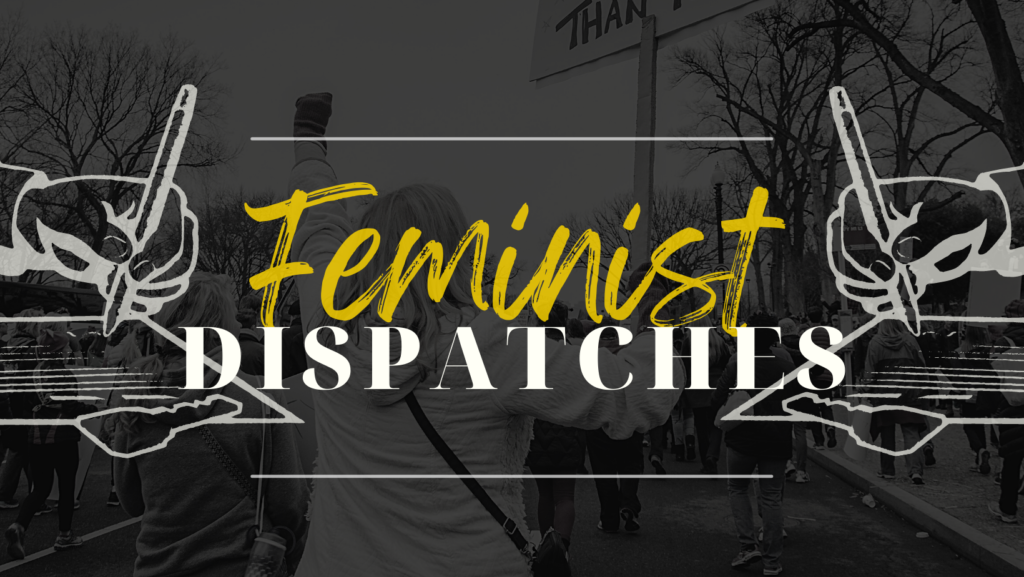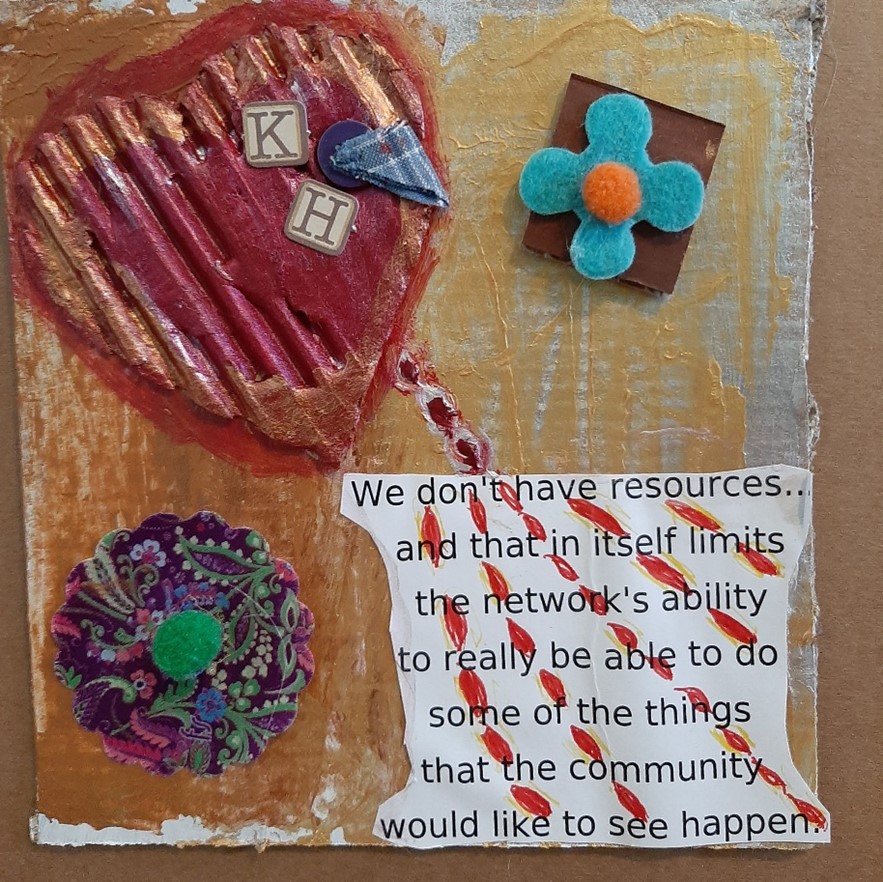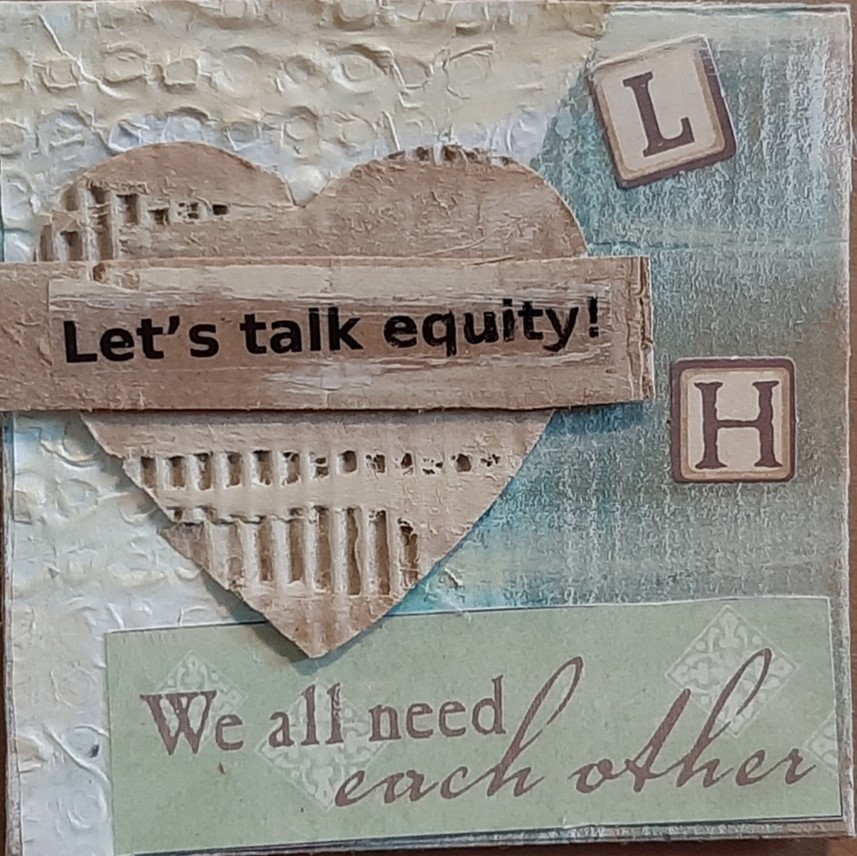Dispatch by Julia Fursova

“Community participation – with what money and whose time?!” – much tension and frustration are captured in this poignant statement expressed by a research participant during a conversation on benefits and challenges of community participation in neighbourhood-based projects.


At the same time research participants described their volunteer commitments as ‘labour of love’. Such ‘labour of love’, i.e., volunteer participation, has been recognized as necessary for developing a sense of belonging and promoting greater community cohesion. It has also been known as one of those ‘fuzzy’ concepts that seem to go hand in hand with community empowerment, civic engagement, and everything that is good about the community. Simultaneously, volunteer participation has been increasingly pitched as a response to staffing and other resource shortages in the community sector. Amidst the culture of ever-increasing efficiency and productivity, volunteer participation presents a seductive shortcut for filling in cracks and fissures in community programs and service delivery caused by the years of dismantling public service delivery and social welfare. Non-profit and public agencies actively promote community volunteer participation via various community engagement initiatives. Many are required to demonstrate evidence of a robust community engagement strategy by funders. Yet not so much attention is paid to a critical examination of the ‘fuzz’ and ‘buzz’ of volunteer participation as it is often perceived and portrayed as an unquestionably good and unproblematic concept. Who is participating, what for, why, and with what money and whose time community participation is enabled? These poignant questions were explored with community volunteers of Lawrence Heights, a multicultural neighbourhood that until recently was designated as a ‘priority neighbourhood’, a designation signifying higher than average unemployment levels and travel distance affecting residents’ ability to access services (Fursova et al. 2022, p. 7). Yet the neighbourhood is also known for its vibrant diversity, resilience, and a strong history of community organizing for social change. Residents’ reflections on their experiences as volunteers in community engagement projects are summarized in a recently published peer-reviewed paper ‘Participation – with what money and whose time?’ An intersectional feminist analysis of community participation.’ The paper was co-authored in collaboration with community partners, who took part in the research as participants as well as members of the research advisory committee.
Applying an intersectional feminist lens to the dynamics of neoliberal urban development, the paper problematizes community volunteer participation asking questions of who participates, why, how, and who benefits from volunteer participation considering the power dynamics within which participation unfolds. Drawing attention to the gendered and under-resourced nature of the non-profit and community development work, the paper argues that when approached uncritically, community engagement may contribute to extractivist processes endemic to patriarchal, white supremacist, heterosexual capitalism. The analysis unpacks the notion of ‘extractivism’ drawing on the work of Veronica Gago, a leader in South American feminist movement, who defines extractivism as a political regime that includes all forms of dispossession, looting and exploitation, and which extends to the territories and bodies of those who are ‘othered’, most notably female and femininized bodies of colour (Gago, 2020). The paper argues that the notion of ‘extractivism’ in a neoliberal city extends to low-income racialized community residents’ time, knowledge, and labour via the technologies of instrumental, or ‘technocratic’ community engagement. Such an approach extracts volunteer participation to meet organizational targets of ‘community engagement’. It is often framed in terms of short-term capacity-building projects that offer limited opportunities to co-create meaningful and lasting solutions according to the needs and priorities identified by community members. Short-term, ‘band-aid’ capacity-building projects do not address the root causes of the social issues community volunteers aspire to solve (e.g., food security, health, safety) and fail to build upon volunteers’ requests for space, and other tangible resources that could support their efforts.


Such projects are perceived by community residents as co-opting their desires and visions for community action into bureaucratic processes that result in endless meetings where “there is no energy left for action” (p.10). The extractivist dynamics contribute to a crisis of trust between residents and the non-profit and public agencies in the neighbourhood.
Centering the voices of community residents of Lawrence Heights, who were at the time of research involved as volunteers in two community engagement initiatives convened by non-profit and public agencies, the research captured volunteers’ exasperation and frustration with an extractivist approach to community engagement. Drawing on evaluation frameworks created by volunteers to evaluate the extent and quality of their participation, the paper features a ‘Community Engagement Continuum’ (Fursova et al. 2022, p. 12) offering indicators for an extractivist or technocratic community engagement vs. versus a transformative process. The transformative community engagement stands for intersectional feminist, de-colonial allyship and solidarities with communities of colour, Indigenous and other equity-deserving communities. A transformative approach signifies the process aimed at creating horizontal relationships of collaboration where resources are shared, and community engagement is continuous and based on a long-term commitment centering the voices of equity-deserving community members in decision-making. The proposed continuum is intended to facilitate a shift from the extractivist dynamic of ‘power over’ to a regenerative dynamic of ‘power with’ as part of the transition from a ‘domination-based’ to a ‘partnership-based’ paradigm (Eisler, 2022). The indicators featured in the continuum call for attention to the details of decision-making processes, the language used, meetings facilitation, conflict resolution, and knowledge creation. The notion of ‘continuum’ acknowledges that transformation is never complete and there will always be encounters with the forces that push practitioners back to a technocratic, extractivist end consistent with the status quo, as well as with the forces and dynamics that practitioners can harness towards the transformative end. Each step in this journey is infused with the potential for transformation. The Continuum offered in the publication is intended to support such transformative change, to move from “speaking out” (Fursova et al. 2022, p.11), as one participant put it, to creating the spaces and supports needed “for action” (Fursova et al. 2022, p.10).
The blog features selected pictures of mixed-media cardboard collages made with Lawrence Heights residents during a community art-making session. The collages incorporate direct quotes on community participation shared by research participants during interviews and workshops. The video with collages can be accessed here.
